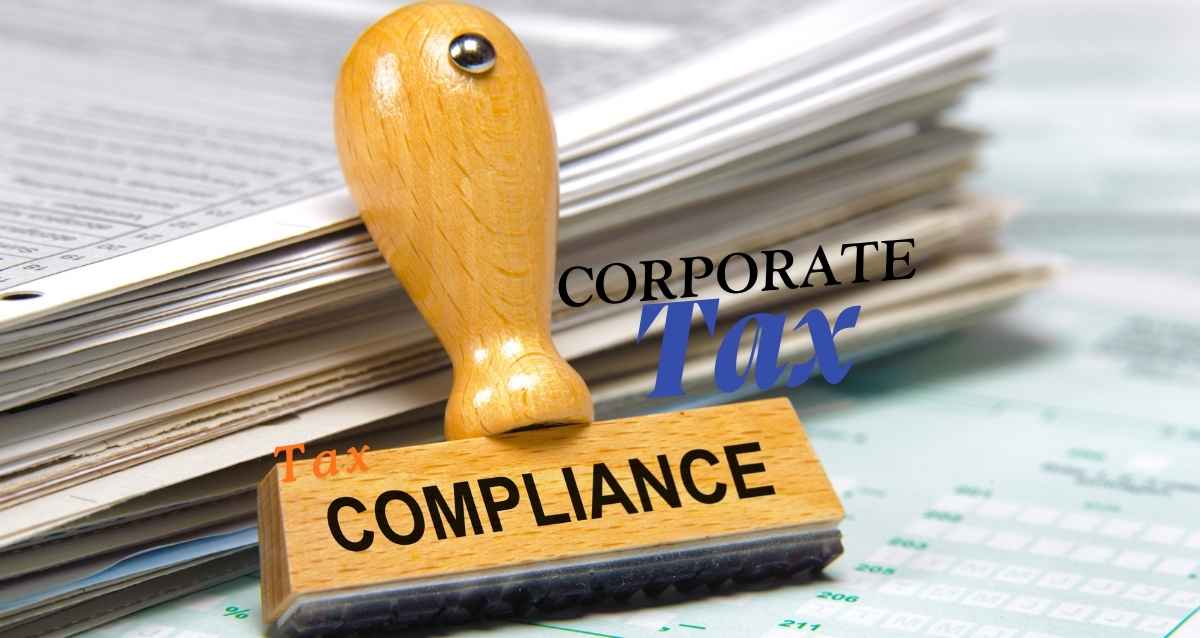Corporate Tax Compliance Checklist for UAE Businesses
In light of the introduction of Federal Decree-Law No.47 of 2022, Corporate Tax compliance is one of the most crucial responsibilities for businesses operating in the UAE. The taxpayers must make sure that they meet all regulatory requirements to avoid hefty penalties as well as other legal complications. Proper management of Corporate Tax compliance helps businesses maintain financial transparency. In this article, let us understand the checklist for businesses to ensure the country's tax compliance.
Understand Corporate Tax Applicability
✅ Based on the revenue generated and the legal type, determine whether the business is subject to UAE Corporate Tax.
Example:- All Limited Liability Companies are subject to Corporate Tax registration and filing of returns irrespective of the revenue whereas the natural person who conducts business or business activities shall be subject to Corporate Tax registration and filing in the event of earning more than AED 1 Million in a calendar year Cabinet Decision No.49 of 2023
✅ Identify the position in corporate tax, whether the entity is eligible for some exemption or tax benefits like Free Zone benefits for qualifying income, government entities, natural resources extraction businesses or public benefit entities etc.
✅ Verify whether the company's status is resident or non-resident for UAE Corporate Tax purposes. Based on this, the registration requirement as well as the tax liability change.
✅ The tax regulations keep getting updated by the authorities. Always watch out for the latest announcement from the authority.
Corporate Tax Registration
➠ Those businesses which are eligible for registering and obtaining tax registration numbers under Corporate Tax must understand their deadline for registration. The registration deadline can change based on the legal type and revenue generated. Follow FTA Decision No.3 of 2024 for registration deadlines.
➠ Maintain all the latest records and details for Corporate Tax registration purposes.
➠ Make sure that the business is registered for Corporate Tax within the timeframe in the manner specified by the authority in order to avoid late registration penalties. AED 10,000 may be imposed on the late registration for Corporate Tax.
➠ After registration, always make sure that the records and details given to the authority at the time of registration are up to date. Any changes in the business such as change of ownership, change of legal status, change of address, or change of business activity are required to be updated to FTA within 20 business days from the date of event. Delay or non-compliance can lead to a penalty of AED 5,000 for the first time and repetition of non-compliance can penalise with AED 10,000.
Maintain Proper Financial Records
✔️ Implement robust internal controls to minimize errors and ensure compliance with tax obligations.
✔️ Business shall elect the accounting method (cash or accrual basis of accounting). Those businesses whose revenue is less than AED 3 Million in a year may choose a cash basis of accounting.
✔️ Books of accounts shall be prepared as per the approved accounting standard which is the International Financial Reporting Standard (IFRS) or IFRS for SMEs.
✔️ Maintain and preserve all records which are related to the Corporate Tax filing. This includes the records related to revenues, purchases, expenses etc. All the records must be kept for 7 years from the end of the relevant tax year.
✔️ Any businesses whose annual revenue is more than AED 50 Million or Qualifying must maintain an audited financial statement and may submit to the authority while filing the tax returns.
Calculate Taxable Income Correctly
➤ Understand the expenses which are allowable for deduction and disallowed while computing Corporate Tax. Example: - Fines and penalties, donations except to the qualifying public benefit entities are disallowed.
➤ Identify the eligible tax credits, exemptions and reliefs specified in the tax law.
➤ Identify the transactions with related parties and payments to the connected persons and make sure such transactions are at Arm's length as per transfer pricing regulations.
➤ Figure out the capital gains which are realized or unrealized, interest expense capping rule etc.
➤ Identify exempt income and make necessary adjustments.
➤ Tax Loss carry forwards, tax loss set-off, foreign tax credits, withholding tax etc. are to be taken into consideration.
Ensure Timely Filing of Tax Returns
➢ Tax returns are required to be submitted within 9 months from the end of the relevant tax year. Tax payments, if any, are also to be required to be settled within the same timeframe.
➢ Prepare tax computation as per the Corporate Tax Laws and regulations and keep all the supportive documents.
➢ It is not only consider the current tax filing, always review the previous tax filings to correct any discrepancies.
➢ In order to improve and accuracy of tax filings, preferably use accounting software which are accredited by the UAE Federal Tax Authority. Example: Zoho Books
Manage Withholding Tax Requirements
➦ Ascertain the withholding tax implication on the payments made to non-residents. Currently, the withholding tax rate is 0%.
➦ Deduct the withholding tax for the eligible payments.
➦ Maintain the records which are related to the withholding tax deducted.
➦ Cross-verify the double taxation treaties signed by the UAE for the applicability of withholding tax.
Stay Compliant with Transfer Pricing Regulations
Here’s a step-by-step guide to ensure compliance:
- Ensure transactions with related parties adhere to arm's length principles.
- Maintain transfer pricing documentation and file relevant disclosures with the FTA.
- Prepare a Local and Master File if applicable to avoid scrutiny from tax authorities.
- Conduct benchmarking studies to support transfer pricing policies.
- Identify the related parties and connected persons of the business.
- Make sure that the transactions with related parties and payments to connected persons are as per the market value ( Arm's Length)
- Maintain the relevant documentation related to related party transactions and connected person's payments.
- Prepare Local File and Master File if applicable. Local Files and Master File are required to be prepared and submitted by businesses which are part of Multi-National Entities and businesses whose annual turnover is more than AED 200 Million.
Review Tax Risk and Conduct Internal Audits
✅ Regularly review the tax position of the business and any deviation from the compliance requirement.
✅ Conduct internal tax audits and prepare 100% complaints for audits from the authority.
✅ Always seek professional advice for complex tax matters, especially in case of tax position, tax calculation, dealing with cross border transactions etc.
Engage a Tax Consultant
➔ Appoint a registered Tax Agent for Corporate Tax matters.
➔ Stay updated with the changes in the landscape of Corporate Tax.
➔ Make sure the representation during the tax audit.
➔ Seek professional advice at the point of doubt in any of the corporate tax matters.
➔ Implement proper tax planning and compliance in a proactive way.
Penalties for Non-Compliance
Non-compliance with corporate tax laws can lead to significant penalties, including:
➛ Late filing penalties for missing tax return deadlines.
➛ Fines for failure to register or update business details with the FTA.
➛ Interest charges on overdue tax payments.
➛ Additional scrutiny from tax authorities, leading to audits and compliance checks.
Use of Technology for Tax Compliance
* Use cloud-based accounting software for maintaining books of accounts.
* Preferably use, accounting software which is accredited by FTA.
* Automate the tax calculation by implementing the proper chart of accounts.
* Ensure the data security for keeping the data and records which are related to the Corporate Tax filing.
International Tax Considerations
For businesses which are dealing with cross-border operations, it is very crucial to understand the implication of international taxation which includes;
- Comply with UAE's tax treaties to prevent double taxation.
- Understand permanent establishment rules to determine tax liability in multiple jurisdictions.
- Evaluate VAT implications for import/export transactions.
- Keep up with global tax trends, such as BEPS (Base Erosion and Profit Shifting) and OECD guidelines.
- Verify the double taxation treaties for withholding tax implications.
- Understand the conditions and make sure of the status of a permanent establishment in multiple jurisdictions.
- Evaluate the VAT implication for import or export transactions.
- Keep the standards with OECD Guidelines and concepts like BEPS ( Base Erosion and Profit Shifting )
Conclusion
Corporate Tax compliance is new in the country and it requires a lot of planning and adherence to make sure the business is not facing any penalty or legal issues. A Corporate Tax expert like Flying Colour Tax Consultant is required for the business to optimize the tax liability, to comply with regulations, to keep updated with the updates from the authority etc. It is very important not to make many common mistakes which businesses may end up doing with the wrong understanding of tax regime. An expert tax agent appointment helps businesses to relax on tax compliance and focus on the core business.
How Flying Colour Tax Consultant Can Help
Flying Colour Tax Consultant LLC specializes in UAE corporate tax compliance, offering;
➛ Tax Agency Services with qualified Tax Agents registered with FTA.
➛ Corporate Tax registration
➛ Corporate Tax return filings.
➛ Advisory on tax deductions, exemptions, and planning strategies.
➛ Transfer pricing documentation and compliance.
➛ Representation in tax audits and FTA interactions.
➛ Accounting and Bookkeeping for the businesses as per the approved accounting standards.
To learn more about Essential Corporate Tax Compliance Steps for UAE Businesses, book a free consultation with one of the Flyingcolour team advisors.
Disclaimer: The information provided in this blog is based on our understanding of current tax laws and regulations. It is intended for general informational purposes only and does not constitute professional tax advice, consultation, or representation. The author and publisher are not responsible for any errors or omissions, or for any actions taken based on the information contained in this blog.



